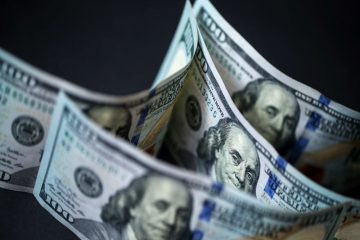Yen slumps as rising energy prices, U.S. yields bite

The yen hit a fresh three-year low on Tuesday, before steadying as traders doubled down on expectations U.S. rates will rise well ahead of peers, while assuming the Bank of Japan would be among the last major central banks to raise rates.
A day after its worst session against the dollar in five months, the yen fell further to 113.49 per dollar in early trade, its weakest since December 2018, before steadying to 113.33.
The yen also stayed in sight of a multi-month lows against other majors with sterling, the euro and the Aussie dollar all trading just off three month highs hit against the Japanese currency the previous day, when the Aussie enjoyed its best session against the yen in eleven months.
“The Bank of Japan will probably be one of the last major central banks to even consider reducing ultra accommodative monetary policy,” said Kim Mundy, currency strategist and senior economist at Commonwealth Bank of Australia.
The yen’s woes helped the dollar stay firm against a basket of major peers, even though the Aussie dollar has been gaining on surging energy prices and a bounce in iron ore.
The dollar index, which measures the greenback against a basket of peers, was at 94.33, not far from its one-year high of 94.504 touched at the end of September, as traders positioned themselves for the U.S. Federal Reserve to announce a tapering of its massive bond buying program in November.
This would also raise the possibility of U.S. interest rate hikes in late 2022, and hunt for the best yields was a dominant factor behind the dollar’s gains.
“The primary driver of the move is the further rise that we’ve seen in U.S. Treasury yields – so it’s a fairly simple story of a widening rates differential…adding to the attraction of the carry trade,” said National Australia Bank’s head of foreign exchange strategy, Ray Attrill.
On Tuesday, two-year Treasury yields leapt to a more than 18-month high on Tuesday as investors bet surging energy prices would fuel inflation and add to pressure on the Federal Reserve to raise interest rates.
Five-year yields rose nearly 4 bps to 1.095% in Asia, their highest since late February 2020 and benchmark 10-year yields touched a four-month high of 1.6310%.
High commodity prices have become a key driver for currency and debt markets. Oil prices steadied on Tuesday, having touched multi-year highs the day before and with other commodity prices also robust the Aussie dollar stayed firm at $0.7342, a day after hitting a month high.
Rising inflation concerns and the potential for action by the Bank of England meant the pound rose to a two-week high of $1.3596 on Monday before easing back slightly to last change hands at $1.3598.
The euro however stayed pinned near its lowest levels in a year, fetching $1.1559. The South Korean won fell to 1,200 per dollar for the first time in 14 months after the Bank of Korea kept interest rates steady, taking a breather after hiking in August.
In cryptocurrencies, bitcoin edged off a five month high, falling 1.3% in Asian trading to $56,700. Ether, the world’s second biggest cryptocurrency dropped 1.54% to $3,489.


